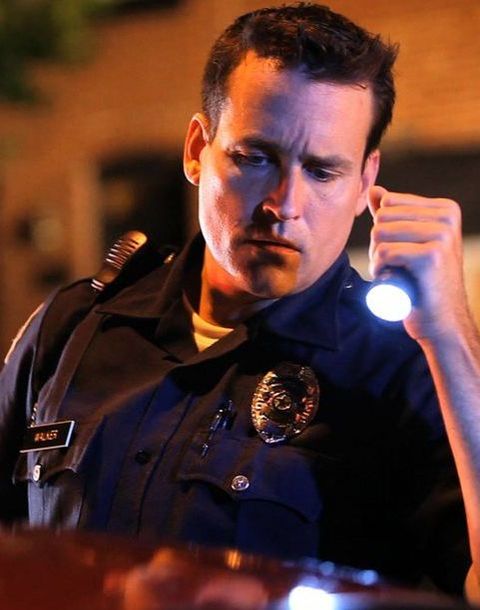 The simplest answer is that probable cause is a legal standard of proof. Probable cause is one of many rungs on a legal ladder of increasingly demanding standards. Let’s start at the bottom. Reasonable Suspicion The lowest rung of our ladder is reasonable suspicion. This is the least demanding standard of proof recognized by our legal system. It is used in determining things like when an officer can pull you over, or when can police detain you to ask you questions. The law requires that reasonable suspicion be based on some specific and articulable fact, that, when taken with rational inferences suggest that someone is or about to be engaged in criminal activity. For example, if police observes erratic driving that would likely be enough for reasonable suspicion that such a driver was intoxicated and justify a stop. Reasonable suspicion has its limits however. When an officer has reasonable suspicion, they are permitted to take reasonable and minimally intrusive steps to confirm their suspicion. They are not however permitted to conduct a search or execute an arrest with just reasonable suspicion. For that, they need probable cause. Probable Cause To justify a police search or arrest, the required standard is probable cause. The law says probable cause amounts to a “fair probability” based on the reliable information known to law enforcement. Again, this is not a high standard. While many scenarios are clear cut in whether probable cause exists, the boundaries of probable cause are not concretely defined. For example, probable cause exists in all of the following scenarios: an officer observes a motorist turn right without signaling (probable cause that a traffic violation was committed); police observe a transaction in a empty parking lot at night in which a clear plastic bag with a white powdery substance is exchanged for a large roll of bills (probable cause that a drug deal was just executed); or a driver displays erratic driving, has heavily slurred speech, a strong odor of alcohol on his breath, and performs poorly on standardized field sobriety tests (probable cause that the driver was driving while intoxicated). Those scenarios are easy. But what if say: a driver has an odor of alcohol about him, but does well on the field sobriety tests, doesn’t have slurred speech, has a little bit of red in his eyes and was driving just fine. Depending on which lawyer you ask, you might get a different answer as to whether or not probable cause exists. Preponderance of the Evidence Perhaps the easiest of the legal standards of proof to explain is the preponderance of the evidence. This standard is used as the deciding criteria in civil cases: More likely than not. Fifty one percent. This rung probably rests right in the middle of our ladder in terms of how demanding it is. Clear and Convincing This standard of proof is used in a much smaller number of cases. It is quite a high standard to meet given that it is used in cases involving such weighty matters like the termination of parental rights by the state, or involuntary commitment of individuals. Its name is perhaps sufficient a descriptor, and its place between the middle ground between preponderance of the evidence and the highest standard of proof of beyond a reasonable doubt should give some clues as to where this standard this sits. Beyond a Reasonable Doubt The highest and most demanding standard recognized by our legal system is used in criminal cases. The justice system uses this gold standard of proof in cases where the state wants to take away someone’s freedom against their will. If you’ve ever been called to serve on a criminal jury and listened to the judge during voir dire, there is a good chance they told you that beyond a reasonable doubt doesn’t have an exact legal definition, and that each person would have to decide exactly what it meant, but that it might be analogized to the same standard as one might use in making the most important decisions in their lives. To be sure, this standard does not require absolute surety, or proof beyond all doubt. But make no mistake, if even a single reasonable doubt lingers when the jury deliberates, the state has failed to meet its burden. “Maybe a dragon burned down the building” is not a reasonable doubt, but “what if the test results were wrong because the machine hadn’t been calibrated that day” is. As discussed before, this is the highest of standards used in our legal system, but with good reason. If a person is to stand convicted, and be restrained of his liberty, then we need to be sure; sure that the case against the accused has been proven beyond a reasonable doubt.
4 Comments
Sherri
4/21/2019 03:03:12 am
Hi, very nice website, cheers!
Reply
12/12/2023 11:52:31 pm
I appreciated the level of detail and the real-world examples used in this article, making it easy to understand and apply the information.
Reply
12/19/2023 02:39:19 am
The author's insights and analysis were insightful, this post was a great read.
Reply
12/19/2023 02:59:45 am
Seeking help for opioid addiction is a courageous step toward reclaiming control and rebuilding a healthier life.
Reply
Leave a Reply. |
Archives
June 2017
Categories |
Location7211 Regency Square Blvd.
Suite 220 Houston, Texas 77036 |
|
We also support Vietnamese, Chinese, and Spanish speaking clients.
Disclaimer--The use of the internet or this form for communication with the firm or any individual member of the firm does not establish an attorney-client relationship. Confidential or time-sensitive information should not be sent through this website. Additionally, the blog content is not legal advice. There are no representations as to the accuracy, completeness, how current, suitability, or validity of any information on the blog. No endorsement of any product or service mentioned on this blog is implied. Neither the use of content provided on this blog nor the provision or submission of any information through this blog or webiste will create an attorney-client relationship.
Disclaimer--The use of the internet or this form for communication with the firm or any individual member of the firm does not establish an attorney-client relationship. Confidential or time-sensitive information should not be sent through this website. Additionally, the blog content is not legal advice. There are no representations as to the accuracy, completeness, how current, suitability, or validity of any information on the blog. No endorsement of any product or service mentioned on this blog is implied. Neither the use of content provided on this blog nor the provision or submission of any information through this blog or webiste will create an attorney-client relationship.

 RSS Feed
RSS Feed